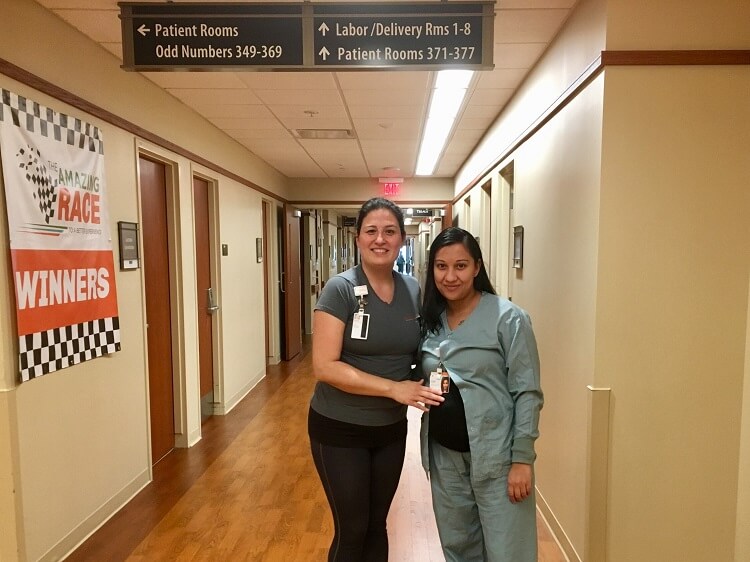If you think massage therapy careers are limited to spas and resorts, think again! Massage therapists are now an integral part of many health care settings, such as rehabilitation centers, hospitals, assisted living facilities, hospices and other health care venues. Why? Because massage therapy has profound health benefits documented by clinical research, such as lowering blood pressure, increasing circulation, reducing stress, providing pain relief and much more.
Working in a medical setting wasn’t on Esperanza Lee’s radar when she determined that massage therapy “checked all the boxes” for a flexible career that would allow her to spend time with her newborn daughter while also fulfilling her desire to help others live healthier lifestyles. But when National University of Health Sciences (NUHS) massage therapy clinic supervisor Patricia Coe, DC, ND, arranged for Lee to volunteer at a hospice facility, she knew that working with those in medical care was what she wanted to do. “We were just doing hand massages,” Lee said, but she also learned how to read her clients’ medical charts, and saw how she was helping them. “It got me knowing that this was something that I could do, and was willing to do,” she explained.
Since graduating with a Massage Therapy Certificate in 2009, Lee has worked in a chiropractic office, a senior living center and in the Edward-Elmhurst Hospital system, where she currently provides massage services related to maternity care. “I work with expectant mothers who are having complications or are on bed rest, and with mothers who have just given birth,” Lee said. She also helps relieve pain, anxiety, stress and headaches for both mothers and fathers whose babies are in the Neonatal Intensive or Special Care Unit. She shared, “I offer positive energy for my patients.”

She attributes the confidence she feels working in medical settings to her NUHS education. “I researched the schools,” she emphasized. “I wanted an accredited, well-known school that would help me be knowledgeable enough to be able to work anywhere.”
In fact, when she left NUHS she thought she had more information than she would ever need for her chosen career. “You think you’re not going to need to know about things like Chinese medicine, but you do,” she gave as an example. She also found being in an integrative health care environment on the NUHS campus and in the clinic extremely valuable for her chosen path. “I was able to ask questions of professors who weren’t in the MT program and learn from them as well,” she noted. She appreciated being in a program where she was exposed to other knowledge and experiences.
“Our curriculum explores different disease processes that therapists might see in their practice,” Dr. Coe explains. It explores whether massage would be beneficial or not for certain medical conditions. “We don’t just list problems, we explain systems,” she commented, adding, “Our goal is not to have students simply think, ‘I’ve heard of this so I can work on it.’ They’re going to have the knowledge to be able to reason out whether massage would be appropriate for this person.”
Here are some of the reasons Esperanza Lee feels confident that she has the knowledge needed to be a valued partner to medical practitioners:
- National University massage students don’t just study anatomy from books; they work in a gross anatomy lab and examine human musculature and body systems on human cadavers.
- In other programs, students might massage friends and family to earn the internship credits needed for certification. NUHS students spend six months in an integrative medical clinic, where they work on clients with a variety of health conditions, create charts and collaborate with clinical physicians.
- National graduates understand medical terminology and clinical protocol needed to effectively communicate with other health care providers, making them respected professionals on an integrative health care team.
“Someone considering going to National should go knowing they will be confident in their knowledge after graduation,” encouraged Lee. “They will never have to second guess themselves!”
{{cta(‘a0357176-d77b-453e-9511-83633be6aa23’)}}



